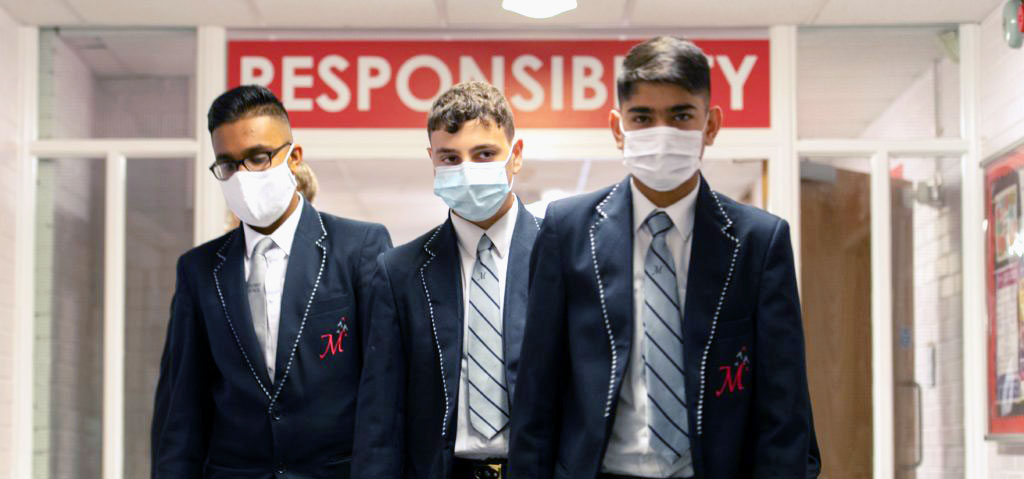This week the Government announced that secondary school pupils will once again be ‘strongly advised’ to wear face masks in ‘communal areas’ such as corridors. The Department of Education has said that the guidance is temporary and will be reviewed in three weeks (when most schools break up for the Christmas holidays).
The lack of logic behind this policy is infuriating. Why enforce masks in communal areas but not classrooms, where students spend the majority of their time and transmission is most likely? Why make masks mandatory for secondary pupils but not primary ones? Between the 10th and 20th of November, almost the exact same percentage of primary school students tested positive for Covid as secondary school ones (3.7 to 3.5), and we already know that primary school staff are just as likely to catch Covid as secondary school staff.
There is of course an argument that we need to be cautious until we know more about the Omicron variant. However, if the Government is genuinely concerned about the transmissibility of Omicron, and its potential to evade vaccine protection, then it should act accordingly.
We know that fabric face masks have very little effect — their inefficacy means they have already been banned in French schools — and this probably explains why Scottish schools have struggled with outbreaks even though face coverings have been mandatory since October half term. In fact, according to Oxford’s Prof. James Naismith, ONS survey data on Covid prevalence showed that ‘the Scottish and English approach to masking although formally different since July has made no meaningful difference to Delta.’
On the other hand, more filtered face coverings such as surgical or FPP2 masks give much higher levels of protection: up to 94-95%. If we are going to force students to wear masks (which is far from a given), then surely we should at least make them wear masks that actually work?
The policy seems to be yet another example of the government’s desire to be seen to do ‘something’ when in reality it is doing nothing; an action that is a distraction from their inaction. For months schools have campaigned for carbon dioxide monitors to monitor ventilation levels in classrooms, and despite the government pledging £25 million to improve schools’ ventilation, latest figures suggest that only 2% of schools have received these. Yet only 40% of secondary school teachers think their classrooms are well-ventilated, and 7% cannot even open their windows.
I also worry about the return of self-isolation for contacts of the new Omicron variant, and the inevitable disruption this will have on teaching and learning as healthy children are forced to quarantine. What’s more it will hardly help vaccine uptake amongst teenagers (of whom only around 20 percent have been jabbed) — how can we tell them to trust the vaccine and yet restrict and disrupt their lives regardless?
When used correctly masks may well serve a useful purpose, but this halfway house is just performative hygiene theatre. As one student aptly put it to me this morning, “Here we go again, Miss.”











Join the discussion
Join like minded readers that support our journalism by becoming a paid subscriber
To join the discussion in the comments, become a paid subscriber.
Join like minded readers that support our journalism, read unlimited articles and enjoy other subscriber-only benefits.
Subscribe